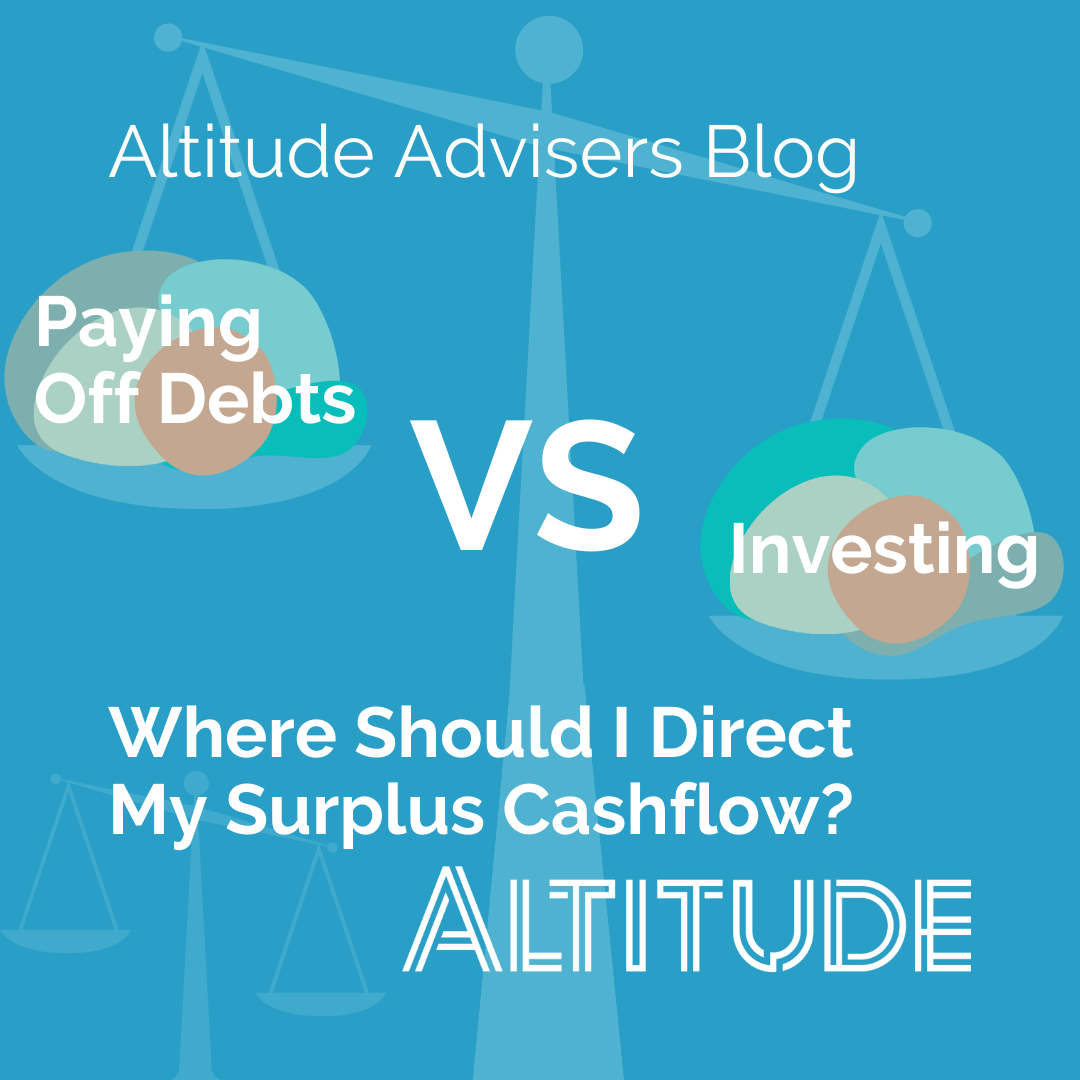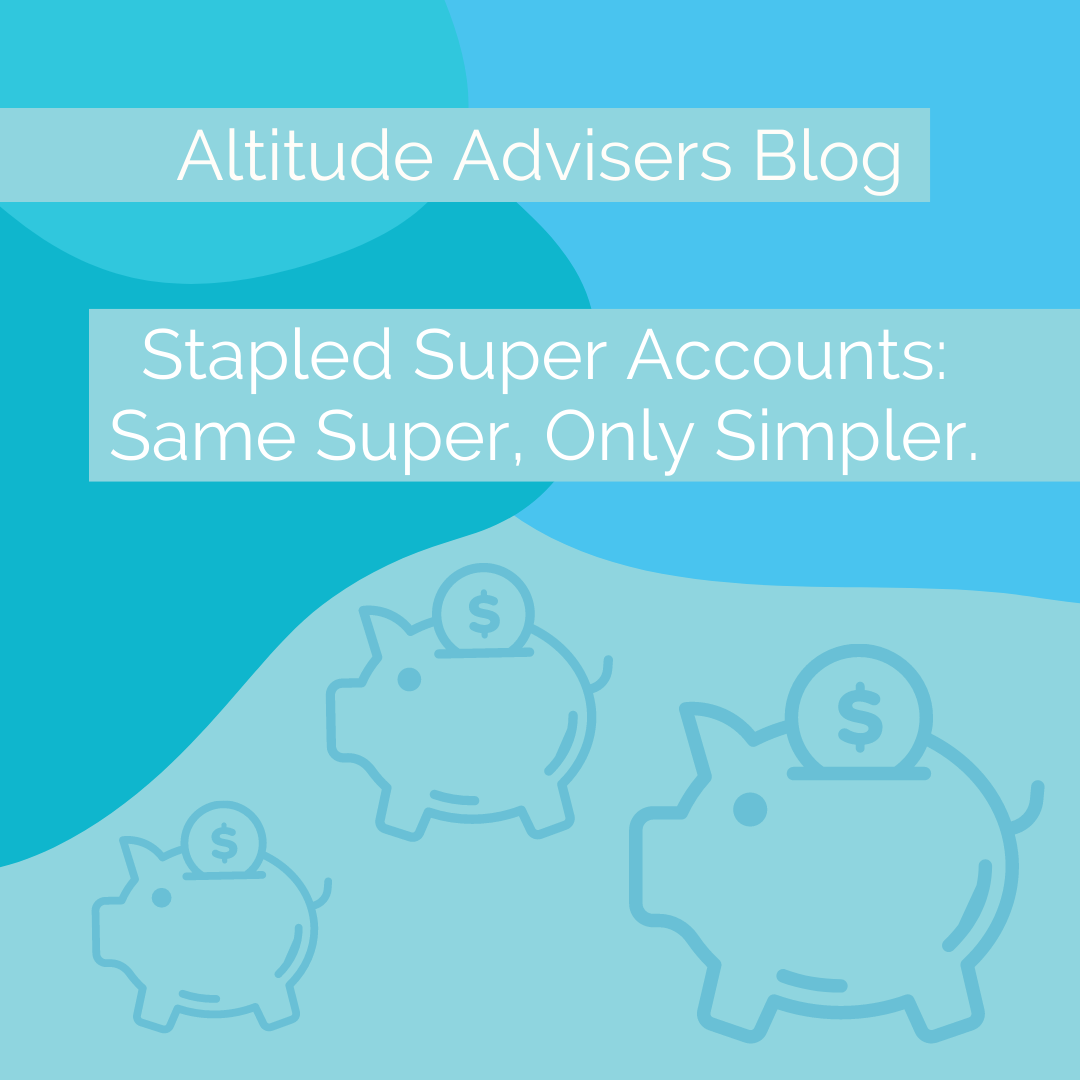
If you have surplus cash flow, you are dealing with a lovely problem. Where do you put all that extra cash surplus?
Investing and paying down debt are the regular solutions people go to for an issue like this.
Investing means money is set aside for your future and paying off debt represents money that you have already spent and that a lender is charging you interest on.
Lets take a look at the pros and cons of each option.
Debt Repayment
The first option for many people is often debt repayment, as short-term investment is unlikely to yield a return equal to or greater than the rate of interest you are paying on any of your debt.
For example, if you have a mortgage with an interest rate of 5% and a stock market index fund that is returning 10% a year, you will come out ahead by investing your extra cash in the index fund. However, the decision to automatically pay down debt may not be correct in all cases. If you have credit card debt at 20%, you would be better off putting your extra cash toward paying that debt rather than investing it in the index fund.
The benefits of debt repayment are:
- Making savings on interest payments
- Lessening your long-term financial commitments
- Allowing yourself to focus on future financial growth by getting expenses out of the way
Reflections should be made depending on how high your debt’s interest rate is, the quantity of the debt, how long it is until you retire as you may not want to carry that debt into retirement, tax should also be considered (if you invest your money in super for example, you may not need to pay tax on these earnings).
Investing
Many factors come into play when deciding if and how to invest your surplus cash.
Determining how much to invest and when to invest is important when seeking the highest rate of return. Timing is key in making investments with a high yield.
While the current market is experiencing volatility, focusing on debt repayment may be the best route for your personal circumstances. However, at other times, it may have been a better option to let debt sit while making investments with high returns.
Four factors must be considered when making your investment decisions:
1. Risk
- Higher risk generally means higher yield, while lower risk often means lower yield.
2. Liquidity
- Describes how easily you can access the cash you put into an investment. For example, a money market account is very liquid. You can pull cash from this account at any time without incurring penalties for withdrawal. Other investments such as a certificate of deposit will penalise for early withdrawal.
3. Maturity
- This describes the length or duration of your investments. Many investments are designed to be held over a certain period. When an investment is “held to maturity” that means it is ready to be returned to the investor.
- Investment maturity should occur so you have access to cash when you need it.
- Investing with staggered maturities means you can invest with different maturities. When the first one matures, you can buy another investment with the previous yield and you can stagger your buying.
4. Yield
- Refers to the earnings generated and realized on an investment.
- This factor is determined by risk, maturity, and liquidity of an asset.
- The three above factors determine your yield
Each of the above factors determine the rate of return you will receive on your invested cash surplus. Investments might take the form of checking accounts with interest, sweep accounts, treasury bills and notes, and certificates of deposit and money market funds.
Finding a way to do both
Finding a way to both minimise the expense of interest from debts and maximise incoming interest from investing could also be the best option for you. To formulate a plan that fits exactly with your circumstances, it might be important to take a bit from column A and a bit from column B.
If you can, there is no reason not to put a little money aside for investment while also paying off any expensive debts. Super-high-interest loans should take the priority for paydown in your budget.
Making monthly progress toward both your retirement savings and paying off debt could be the best of both worlds for you.
Whatever you do, you will be better off if you take any of the above paths.
While this article covers general knowledge, it does in no way substitute for the wealth of knowledge and experience our advisers have in managing surplus cash-flow in a way that will benefit your specific financial situation with the best possible outcome.
Speak to your Altitude financial adviser to receive more appropriate advice tailored to your specific circumstances and needs.


